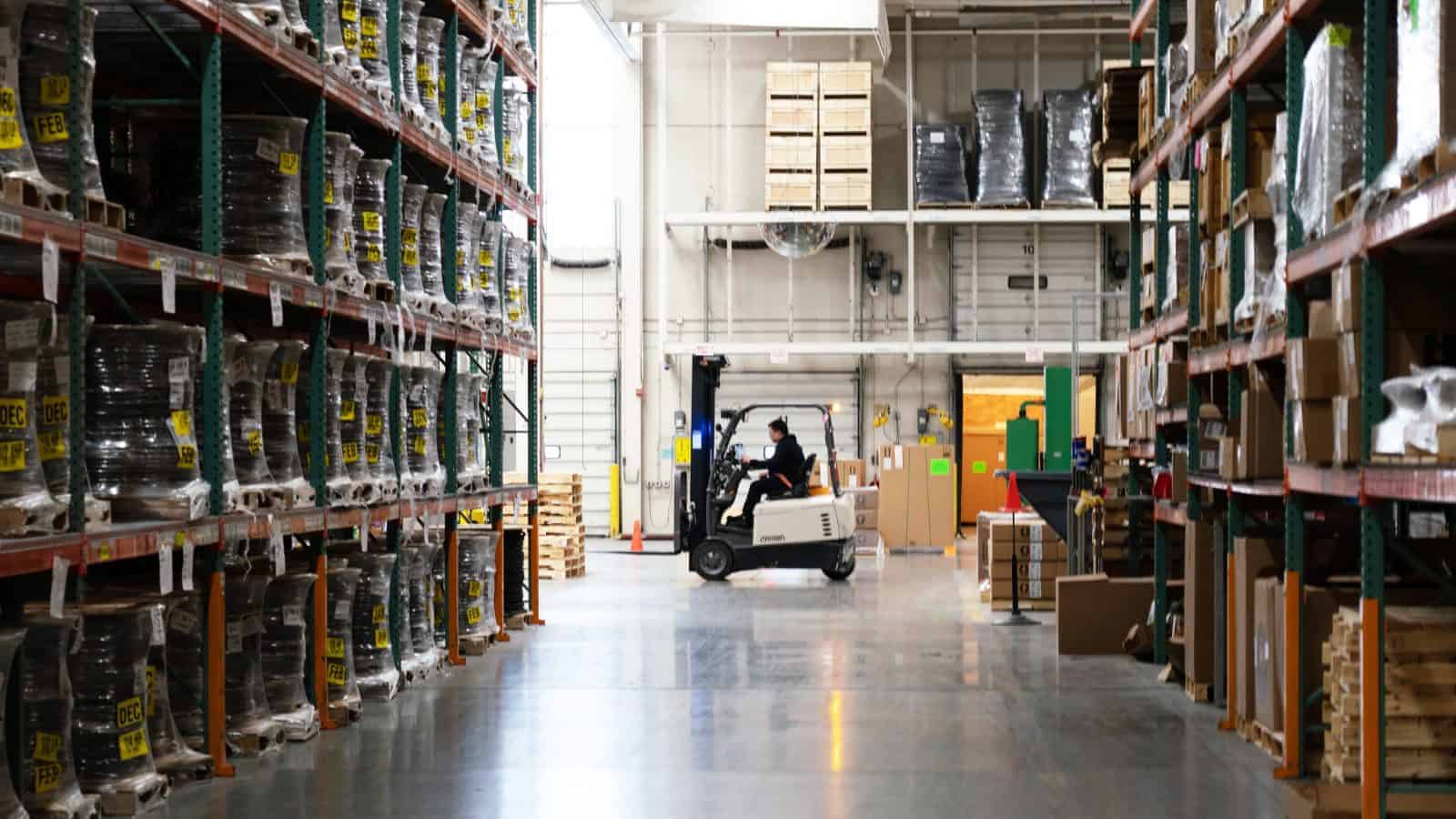NAM’s Timmons Joins Vice President Pence, Manufacturing Leaders at SCHOTT North America
Manufacturing Leaders Call on Congress to Ratify USMCA
Washington, D.C. – National Association of Manufacturers President and CEO Jay Timmons today joined Vice President Mike Pence and manufacturing leaders from across Pennsylvania at SCHOTT North America in Duryea to celebrate the factory’s 50th anniversary and to urge Congress to ratify the United States–Mexico–Canada Agreement. Leaders of the United States, Mexico and Canada approved the USMCA last year to replace the 25-year-old North American Free Trade Agreement.
In his visit with Vice President Pence to a Pennsylvania manufacturer in support of the USMCA, Timmons stated that tax reform and regulatory certainty championed by the current administration served as “rocket fuel for manufacturers, propelling manufacturing to new heights.” But, he noted, manufacturers are seeing new challenges brought on by global headwinds. Timmons pointed to the group’s most recent quarterly outlook survey—where more than 60 percent of NAM member companies saw trade uncertainties as a major challenge—as yet another reminder of why manufacturers need the USMCA passed soon.
Below are excerpts from Timmons’ remarks urging swift passage of the USMCA:
“Twenty-five years ago, the North American Free Trade Agreement helped expand access to Canada and Mexico, but our industry has transformed since then. NAFTA is now in need of an update—a new set of standards for the 21st-century economy—which is exactly why the administration negotiated the USMCA.
“Now it’s time for Congress to pass it.
“For manufacturers like SCHOTT, the USMCA would provide best-in-class intellectual property rules, set new standards for innovation and the modern digital economy, eliminate red tape at the border, improve transparency and ensure we can sell products duty free and much more.
“Why is that so important?
“SCHOTT earns more than three-quarters of its sales from consumers outside of the United States. These sales support good jobs for SCHOTT’s workers and a better economy for everyone. For so many manufacturers, expanding access to international markets is critical.
“And the most important trading markets are Canada and Mexico, which alone purchase more U.S.-manufactured goods than our next 11 trading partners combined—despite representing less than 4 percent of the global economy.
“That’s why manufacturers are raising our voices in unison, calling on Congress to ratify this agreement and provide businesses with a level playing field and certainty to compete, grow and win in the global market.
“The Speaker of the House said recently that her party is ‘on a path to yes.’ So let’s get to the destination and pass the USMCA this year.”
Timmons concluded his remarks with a call for manufacturers to let their voices be heard by telling members of Congress that “a vote for the USMCA is a vote for America’s manufacturing workers.”
In addition to Vice President Pence, Timmons was joined by SCHOTT North America President Jim Gareau, SCHOTT Duryea Site Manager Robert Gomeau, hundreds of manufacturing employees and dozens of community leaders from across Pennsylvania.
For Timmons’ full remarks, click here.
-NAM-
The National Association of Manufacturers is the largest manufacturing association in the United States, representing small and large manufacturers in every industrial sector and in all 50 states. Manufacturing employs more than 12.8 million men and women, contributes $2.38 trillion to the U.S. economy annually, has the largest economic multiplier of any major sector and accounts for more than three-quarters of private-sector research and development. The NAM is the powerful voice of the manufacturing community and the leading advocate for a policy agenda that helps manufacturers compete in the global economy and create jobs across the United States. For more information about the Manufacturers or to follow us on Shopfloor, Twitter and Facebook, please visit www.nam.org.
Vice President Pence to Deliver Remarks on USMCA at SCHOTT North America
Duryea, PA – On Monday, the National Association of Manufacturers and SCHOTT North America will host Vice President Mike Pence at SCHOTT North America in Duryea, Pennsylvania, to highlight the positive impact the United States–Mexico–Canada Agreement will have on manufacturers and employees in Pennsylvania.
WHAT:
Remarks by Vice President Mike Pence at SCHOTT North America;
introduction by SCHOTT Duryea Site Manager Rob Gomeau, SCHOTT North America President Jim Gareau and National Association of Manufacturers President and CEO Jay Timmons.
WHERE:
SCHOTT North America Inc. – Site Duryea
400 York Ave.
Duryea, Pennsylvania
18642
WHEN:
Monday, Oct. 21, 2019
*All times local, EDT
10:00 a.m. – 11:00 a.m.: Media call time and preset for video cameras and tripods.
11:00 a.m. – 1:00 p.m.: Access closed to press.
MEDIA:
Coordinate Information: Latitude, 41.3471332; Longitude -75.7496961
Camera Throw: 70 feet
Cable Run: 125 feet
RSVP:
Full Name:
Network Affiliation:
Position (Camera, Still Photographer, Reporter):
Cell Phone Number:
Email:
Event (Visit to SCHOTT North America Inc. – Site Duryea):
*Note if you are arriving with a satellite truck.
-NAM-
The National Association of Manufacturers is the largest manufacturing association in the United States, representing small and large manufacturers in every industrial sector and in all 50 states. Manufacturing employs more than 12.8 million men and women, contributes $2.38 trillion to the U.S. economy annually, has the largest economic multiplier of any major sector and accounts for more than three-quarters of private-sector research and development. The NAM is the powerful voice of the manufacturing community and the leading advocate for a policy agenda that helps manufacturers compete in the global economy and create jobs across the United States. For more information about the Manufacturers or to follow us on Shopfloor, Twitter and Facebook, please visit www.nam.org.
733 10th St. NW, Suite 700 • Washington, DC 20001 • (202) 637-3000
NAM Leads More Than 350 Industry Groups in Urging Swift Passage of the USMCA
Washington, D.C. – The National Association of Manufacturers, joined by more than 350 associations and businesses representing manufacturers of all sizes, today called on Congress to ratify the United States–Mexico–Canada Agreement. Leaders of the United States, Mexico and Canada approved the agreement last year to modernize the 25-year-old North American Free Trade Agreement. In a letter sent to Congress, the coalition writes:
We write to you to urge passage of the United States–Mexico–Canada Agreement as soon as possible this autumn. . . . North America is the most significant trade market for the United States globally, with Canada and Mexico purchasing one-fifth of the total value of U.S. manufacturing output. Canada and Mexico alone, despite representing less than 4 percent of the global economy, buy more U.S.-manufactured goods than our next 11 trading partners combined. Here at home, U.S. manufacturing exports to Canada and Mexico support millions of American manufacturing jobs as well as 40,000 small and medium-sized businesses and communities across all 50 states.
Mexico’s government has ratified the USMCA. It now awaits approval from Congress. The coalition writes that the USMCA would spur economic growth and provide much-needed certainty for manufacturers across North America through the following provisions:
• Strengthen and Modernize America’s Innovation Engine: The USMCA includes best-in-class intellectual property rules that will help protect the full range of U.S. manufacturing inventions and innovations from theft and set new standards for the 21st-century digital economy that will prohibit distortive measures that undermine American innovation.
• Expand U.S. Manufacturing Access to Canada and Mexico: The USMCA will maintain and improve duty-free market access to Canada and Mexico, eliminating red tape at the border and making it easier for small and medium-sized businesses to sell into these critical markets.
• Level the Playing Field: The USMCA will raise standards, improve transparency and prohibit both anti-U.S. discrimination and anti-competitive activity—all while providing the same binding enforcement for all obligations in the agreement.
Click here to view the letter and full list of signers.
-NAM-
The National Association of Manufacturers is the largest manufacturing association in the United States, representing small and large manufacturers in every industrial sector and in all 50 states. Manufacturing employs more than 12.8 million men and women, contributes $2.38 trillion to the U.S. economy annually, has the largest economic multiplier of any major sector and accounts for more than three-quarters of private-sector research and development. The NAM is the powerful voice of the manufacturing community and the leading advocate for a policy agenda that helps manufacturers compete in the global economy and create jobs across the United States. For more information about the Manufacturers or to follow us on Shopfloor, Twitter and Facebook, please visit www.nam.org.
Universal Postal Union Changes Deliver Win for Manufacturers
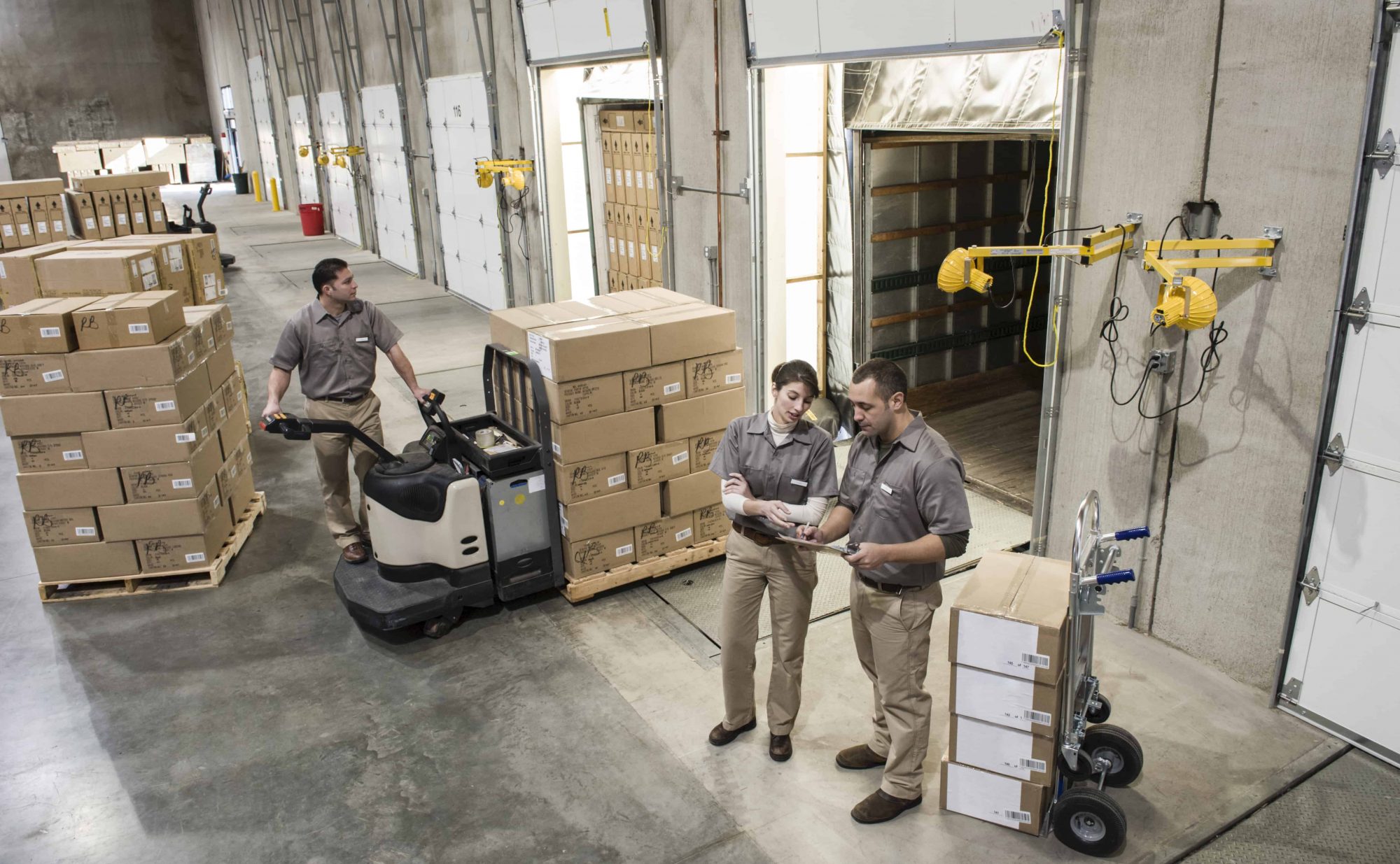
This week, the Trump administration successfully negotiated changes to the Universal Postal Union (UPU) that will protect manufacturers from counterfeiters and other bad actors who have been exploiting the international system. The improvements were agreed upon at a special UPU conference in Geneva after two days of negotiations.
The UPU is an agency of the United Nations that coordinates the worldwide postal system and postal policies among member nations. In recent years, Chinese counterfeiters have exploited the system, which allowed them to ship packages to the United States at highly subsidized rates.
The Trump administration gave notice in October of last year that the United States would pull out of the UPU unless the body implemented significant structural reforms to the “terminal dues” system under which postal operators exchange mail, arguing that some countries’ postal carriers are not paying enough to have their shipments delivered to recipients in the United States.
Some countries in the UPU, such as China, pay lower rates because they were classified as “developing countries” when the terms of the UPU were originally agreed to. The terminal dues system and classifications have not changed in decades, while some of those countries have grown into major global economies.
Under the negotiated changes, countries with high-volume imports of mail and packages will be able to impose “self-declared rates” for distributing foreign mail. The agreement goes into effect in January 2021, but the United States may immediately begin to set payment rates that cover the true cost of carrying inbound international mail. In addition, UPU countries won a significant increase in the rates they can charge inbound mail from China as a way of reducing the total global subsidy China receives under the prior framework.
“With the changes negotiated this week, the U.S. can feel comfortable continuing its membership in the UPU and fighting for further reforms from inside the system while at the same time protecting manufacturers from counterfeiters overseas,” NAM Vice President of Labor, Legal and Regulatory Policy Patrick Hedren said. “These changes level the playing field for manufacturers against counterfeiting and other unfair trading practices. The administration gave manufacturers a true seat at the table, and we look forward to working with them and our international partners to continue promoting a fair and open trading economy.”
EAGL Coalition Addresses Global Regulatory Issues
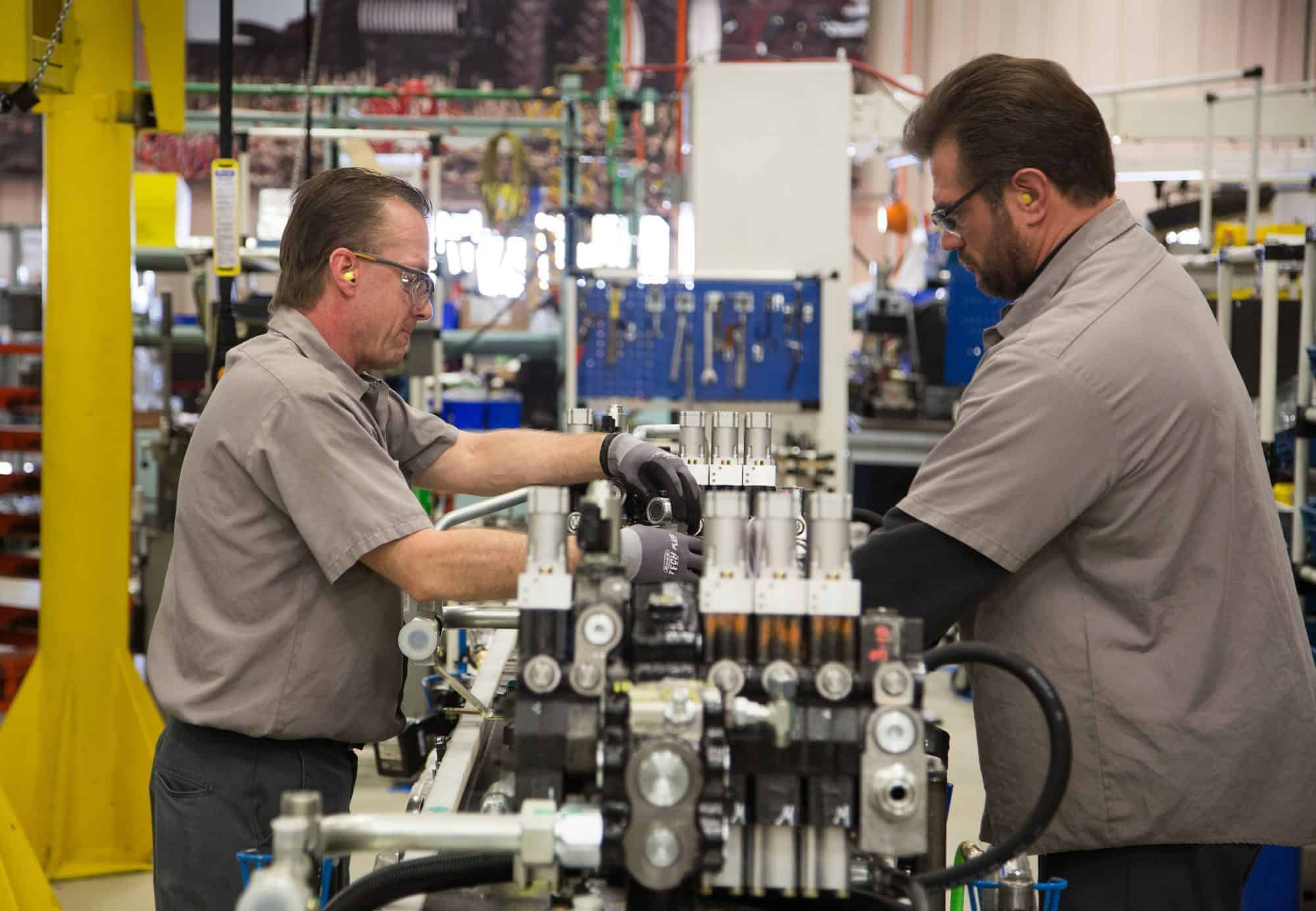
As the importance of international trade continues to rise, the National Association of Manufacturers has elevated its efforts to tackle global regulatory issues that impact manufacturers through its leadership in the Engaging America’s Global Leadership (EAGL) coalition.
EAGL represents a group of U.S. industries that believe in the importance of effective American leadership within multilateral organizations, such as the United Nations, Organization for Economic Cooperation and Development and the World Health Organization.
As the U.N. General Assembly opens, the NAM’s Director of International Business Policy Ryan Ong explains EAGL’s work and importance for manufacturers.
Why are the actions of these multilateral organizations important?
They play critical roles in promoting a more stable, predictable world and tackling important global issues such as international health, development and environmental sustainability. At their best, these organizations bring together government leaders, businesses, civil society, academic experts and other key stakeholders in transparent, inclusive conversations that drive effective policies and partnerships to solve global problems.
How do these international organizations relate to the needs of American manufacturers?
These organizations can directly impact policy decisions made by national governments. Resolutions and reports from these groups shape national debates and regulations, influencing U.S. exports, jobs, and manufacturing competitiveness. This makes it critical for these organizations and their activities to be accountable to member states and inclusive of the private sector and to reflect good regulatory practices and evidence-based approaches.
What areas is EAGL most interested in?
EAGL and its members focus on initiatives that impact manufacturers at international organizations. Examples include efforts to levy new tax and operational restrictions on manufacturers, impose bans or burdensome regulatory restrictions on manufactured products, and limit the ability of manufacturers to protect critical intellectual property.
EAGL is also a strong advocate for inclusive approaches at international organizations that embrace the private sector as an indispensable partner in policies and programs to achieve global goals.
How does EAGL aim to represent manufacturers’ views at international organizations?
The coalition works with a growing network of public and private stakeholders to promote effective member state leadership through stronger coordination within and between a growing set of international business and third-party allies and direct engagement with U.S. and foreign governments in national capitals, Geneva, New York and elsewhere.
The U.N. General Assembly starts tomorrow. What should manufacturers pay attention to during this meeting?
This year’s U.N. General Assembly includes a range of events that could have an important impact on manufacturers in different sectors by shaping national regulations around the world, thus impacting their ability to export and operate in critical markets needed to compete, grow and hire.
These include a high-level universal health coverage meeting and a related political declaration that could drive manufacturing-relevant national policies on areas such as innovation, taxation and regulatory restrictions. Other events include a Climate Action Summit, high-level forums on sustainable development and development financing, as well as a wide range of side events hosted by business and civil society groups.
NAM in 5 Photos: Week of Sept. 9
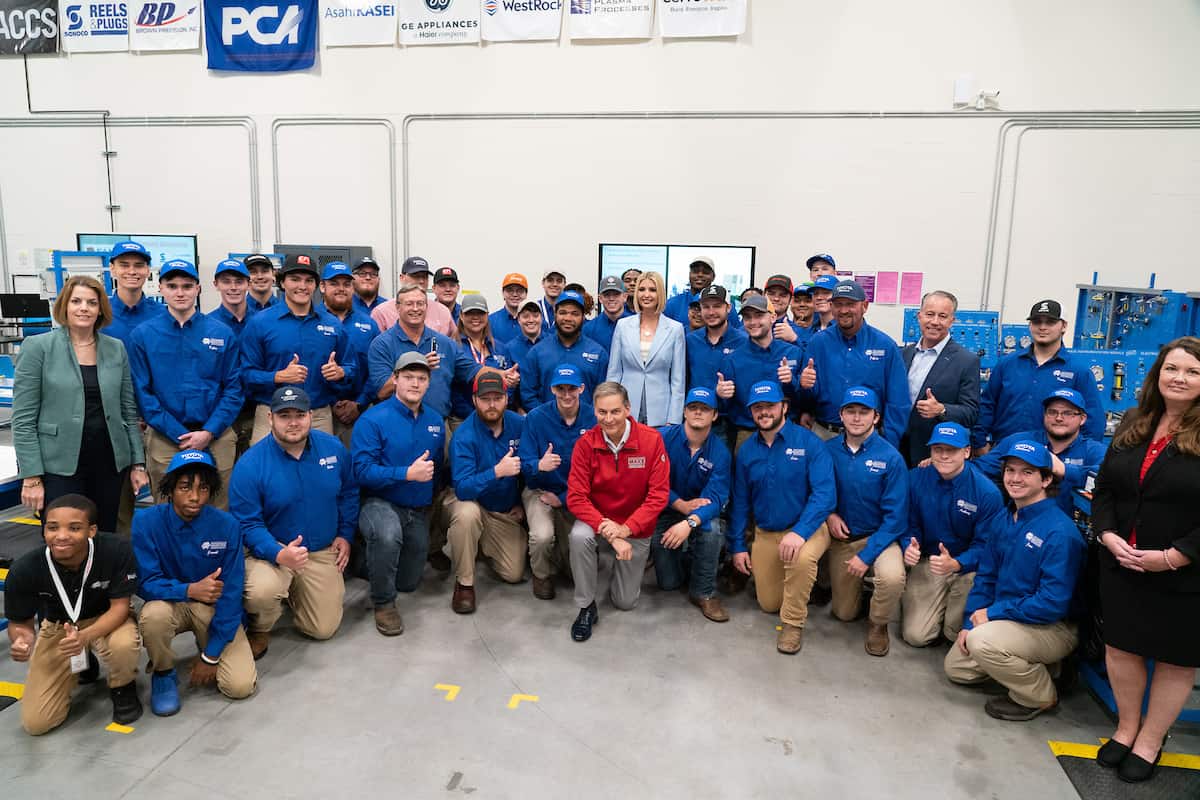
This week, the National Association of Manufacturers helped move the manufacturing industry forward on three major fronts.
- The NAM’s workforce and education partner, the Manufacturing Institute, announced it will expand Toyota North America’s successful FAME apprenticeship program nationwide. The MI’s Executive Director Carolyn Lee, the NAM’s CEO Jay Timmons, Special Advisor to the President Ivanka Trump, TMNA’s Executive Vice President Chris Nielsen and Ingersoll Rand CEO Michael Lamach shared this news during a roundtable with FAME apprentices.
- At the NAM’s headquarters, Export-Import Bank President and Chairwoman Kimberly Reed participated in a roundtable with manufacturers to discuss the critical bank reauthorization.
- Also at the NAM’s headquarters, Environmental Protection Agency Administrator Andrew Wheeler and Assistant Secretary of the Army for Civil Works R.D. James joined Timmons to announce the finalization of a rule to repeal the controversial 2015 Waters of the United States rule and clear the way for a new rule to protect America’s water resources without overstepping the bounds of the law.
Manufacturers Urge Quick, Vital Action on Ex-Im Bank Reauthorization
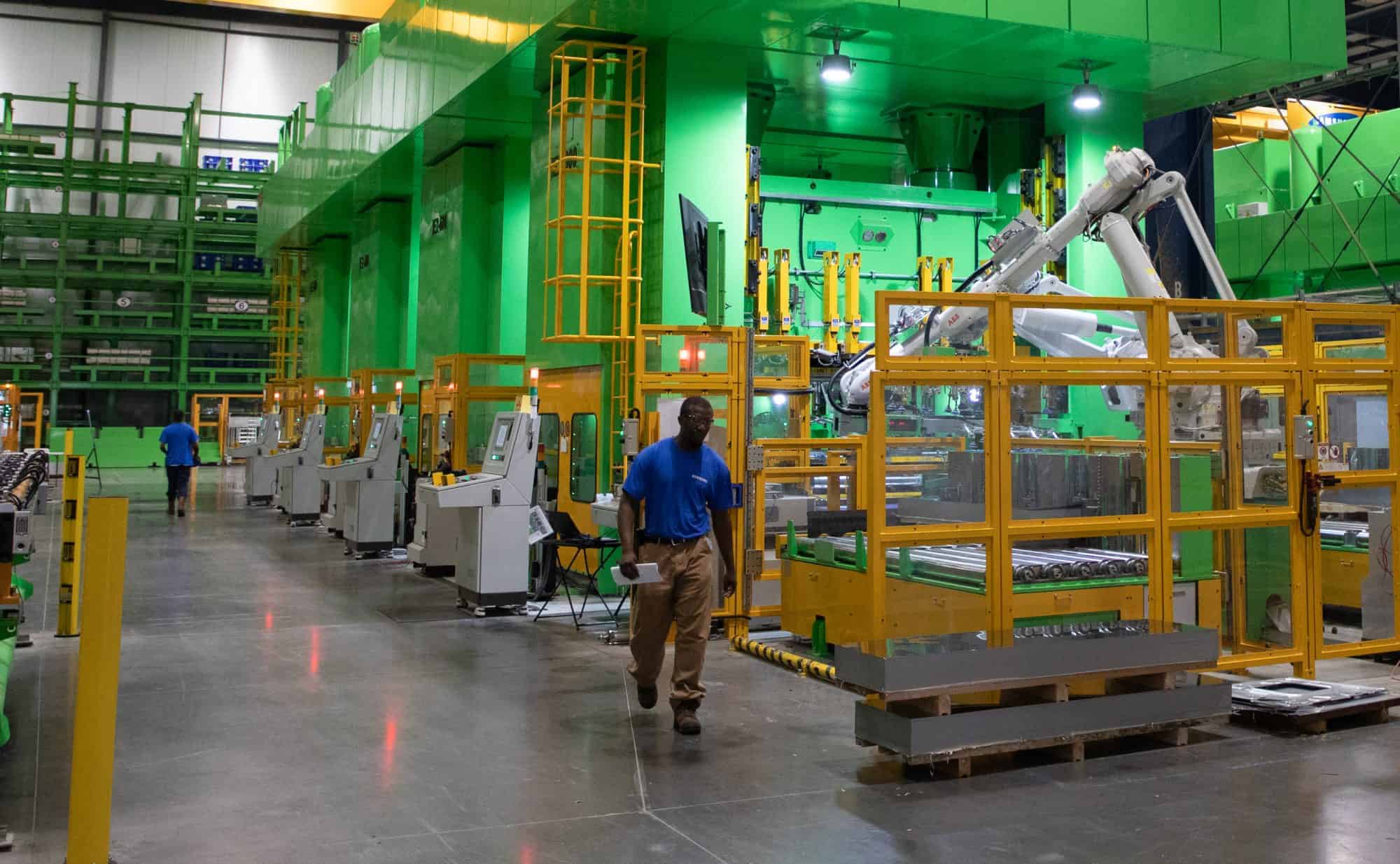
Today, more than 200 companies and organizations called on the U.S. House and Senate to pass a “robust and long-term reauthorization” of the Export-Import Bank before its charter expires at the end of September.
As the U.S.’ official export credit agency, the Ex-Im Bank’s mission is to support American jobs through facilitating U.S. exports. Since 2000, the Ex-Im Bank has supported nearly $450 billion in exports from thousands of mostly small- and medium-sized companies and helped support over 2.5 million American jobs.
The Ex-Im Bank has become more important in recent years given the rise of other countries’ export credit agencies, from China’s three agencies to those in Germany, Canada and beyond, making Ex-Im Bank a vital tool to level the playing field internationally for industries in the United States that need to increase foreign export sales to continue creating well-paying American jobs.
“With more than 100 foreign export credit agencies seeking to help their industries and workers win sales at the expense of ours, manufacturers and their American workers need Congress to do its job and secure a long-term and robust reauthorization of the Ex-Im Bank before the end of September,” said Linda Dempsey, Vice President of International Economic Affairs Policy at the National Association of Manufacturers. “Failure to act quickly will put billions of dollars in exports and tens of thousands of manufacturing jobs at risk.”
Kimberly Reed, who serves as the Chairman and President of the Ex-Im Bank, joined the NAM this week for a roundtable on the Bank’s importance to agricultural and manufacturing exports, explaining how the Ex-Im Bank can provide support for businesses of all sizes in the agriculture and manufacturing sectors.
Manufacturers across the U.S. know that allowing the Ex-Im Bank’s charter to lapse would put our country’s businesses at a disadvantage in an increasingly global market, undermining future access to foreign customers. Even a short disruption can have serious effects; according to NAM estimates cited in the letter, when the lack of a board quorum curtailed the Ex-Im Bank’s activities in 2015, manufacturers in America lost $119 billion in output, resulting in 80,000 fewer American manufacturing jobs in 2016 and 2017 alone.
Reauthorization of the Ex-Im Bank has extensive, bipartisan support in Congress, reflected in the cosponsorship of the Export-Import Bank Reauthorization Act of 2019, which was introduced by Senators Kevin Cramer (R-ND) and Kyrsten Sinema (D-AZ) with broad backing. With the Bank’s charter set to expire, Congress has limited time to prevent a serious blow to manufacturing workers, farmers and other industries in America.
“With increasing headwinds in the U.S. and global economies, a long-term, robust Ex-Im Bank reauthorization is just the type of action businesses and workers need to create more certainty so that they can grow investment and operations across the country,” said Dempsey. “With American competitiveness and jobs on the line, there is no time to waste.”
What a Yield Curve Inversion Means for the Economy

Last Wednesday, as yields on shorter-term bonds surpassed those of longer-term bonds, the U.S. economy briefly experienced an “inverted yield curve”. Historically, such an inversion has been a reliable predictor of recessions to come.
Chad Moutray, chief economist for the National Association of Manufacturers, explains the significance of the yield curve and whether manufacturers should worry that a recession is on the way.
What is a yield curve?
In its simplest terms, if I lend money to you over several years, I would expect to get receive a higher interest rate to compensate me for giving up access to my money for a longer time frame. In a healthy economy, interest rates should be upward-sloping as the length of maturities increases.
What does it mean if a yield curve inverts?
An inverted yield curve means that the interest rate for short-term loans is higher than for longer maturities. This would imply that financial markets might be more pessimistic in its outlook.
An inverted yield curve can foreshadow a recession. The spread between 10-year and 2-year Treasury bonds is often seen as an important barometer. Since World War II, when this yield curve has inverted, the U.S. economy has entered a recession within the following 12 to 18 months.
The yield curve between 10-year and 2-year Treasury yields inverted last week. It’s positive now, but still close to inversion. The last time this spread inverted was June 2007, predating the start of the Great Recession by five months.
Should manufacturers be worried? Does that mean that a recession is just around the corner?
There are warning signs that we are closely following. Broadly, the global economy is clearly slowing, as noted in our most recent monthly report, and financial markets have been highly volatile in recent weeks, exacerbated by trade uncertainties. As a result, businesses in the U.S. have become more hesitant in their spending and there are worries that the economic slowdown abroad could find its way to the U.S. Within the manufacturing industry, production is contracting both in the U.S. and abroad, and hiring has slowed in the sector.
However, a yield curve inversion does not necessarily mean that a recession is imminent. Yields may be influenced by other factors, and there are positive economic signs too. Consumer spending remains strong, and the labor market remains near 50-year lows. The U.S. economy should also grow 2.3 percent in 2019.
What can policymakers do to avoid an economic downturn?
Central banks around the world are easing monetary policies to stimulate growth, or to provide an “insurance policy” for the economy so economic recovery can be sustained. These trends have pushed 10-year Treasury yields to their lowest levels since October 2016.
Manufacturers remain optimistic about the future, but in order to keep growing, we need to address the workforce crisis and resolve trade uncertainties. Namely, passing the USMCA, reauthorizing the Ex-Im Bank and securing a bilateral trade agreement with China are necessary to ensure manufacturers in the U.S. can continue to grow.
Washington, D.C. – National Association of Manufacturers President and CEO Jay Timmons released the following statement on the newly-announced 10 percent tariffs on $300 billion worth of Chinese goods:
“Manufacturers acknowledge that China cheats, and we were the first to call for a rules-based, enforceable trade agreement with China to end their unfair and harmful trade practices. The administration’s latest tariff action will certainly get their attention, but it also has the attention of manufacturing workers in the U.S. and their families, who are feeling the negative impact of the current tariffs and will be made even less competitive with this new tax on trade. We trust the administration has considered all of these short-term economic down-sides as they reach for long-term improvement.
“Manufacturing optimism took a substantial hit in our latest survey, driven largely by uncertainties in trade policy. If the U.S. economy slows, the world economy will follow quickly, and China’s people will suffer mightily as well. China should be willing to conclude an enforceable, bilateral trade agreement that ends the uncertainty and levels the playing field for all manufacturers.
“The world is simply not willing to let China continue to distort markets, steal intellectual property and force transfers of technology and data, among other damaging practices. It’s time for an agreement to be reached.”
-NAM-
The National Association of Manufacturers is the largest manufacturing association in the United States, representing small and large manufacturers in every industrial sector and in all 50 states. Manufacturing employs more than 12.8 million men and women, contributes $2.38 trillion to the U.S. economy annually, has the largest economic multiplier of any major sector and accounts for more than three-quarters of private-sector research and development. The NAM is the powerful voice of the manufacturing community and the leading advocate for a policy agenda that helps manufacturers compete in the global economy and create jobs across the United States. For more information about the Manufacturers or to follow us on Shopfloor, Twitter and Facebook, please visit www.nam.org.
733 10th St. NW, Suite 700 • Washington, DC 20001 • (202) 637-3000
Manufacturers Welcome Senate Bill to Reauthorize Ex-Im Bank
“We Need Long-Term Certainty”
Washington, D.C. – National Association of Manufacturers Vice President of International Economic Affairs Linda Dempsey released the following statement praising introduction of legislation authored by Sens. Kevin Cramer (R-ND) and Kyrsten Sinema (D-AZ) to reauthorize the Export-Import Bank:
“We need long-term certainty that the Ex-Im Bank will be able to continue helping manufacturers of all types and sizes secure new sales overseas that support well-paying American jobs. This bipartisan legislation—through its 10-year reauthorization of the agency and fixes to its past quorum issues—will help do just that and marks an important step forward toward reauthorization. Manufacturers appreciate the work of members on both sides of the aisle to move forward a robust Ex-Im reauthorization and urge both chambers of Congress to work together to reauthorize the agency before the September 30 deadline. The more than 12.8 million men and women who make things in America are depending on it.”
Quick facts about the Ex-Im Bank:
- The agency has supported 1.7 million jobs over the past 10 years.
- On average, more than 90 percent of the Ex-Im Bank’s transactions directly support small businesses.
- The agency has generated $9.6 billion for taxpayers since 1992.
- Foreign competitors are stealing America’s competitive advantage by devoting hundreds of billions of dollars to official export credit agency financing for domestic manufacturers.
- The agency’s default rate is better than many commercial lenders and far below the 2 percent maximum rate set by Congress.
-NAM-
